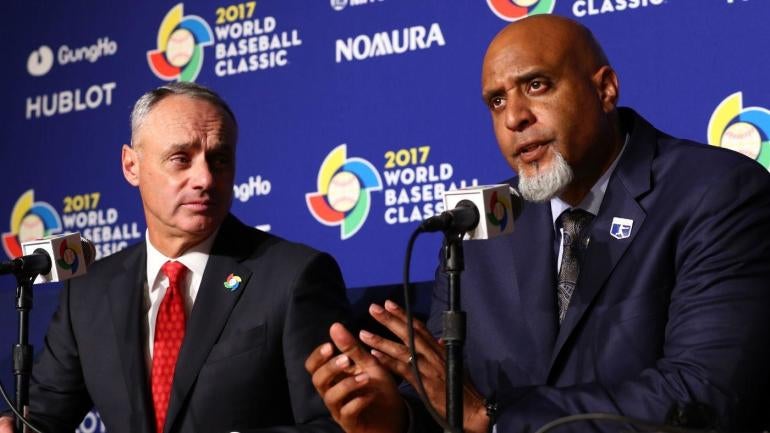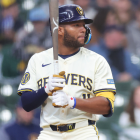
Major League Baseball is scheduled to kick off the 2021 season on Thursday, April 1 -- or, in 66 days. Yet the rules for the upcoming year are just now coming into place. On Monday, the league informed teams that the MLB Players Association had rejected a proposal that would have installed the universal DH in exchange for an expanded postseason and additional money, per MLB Network's Jon Heyman.
What, exactly, does that mean? Let's answer three questions you might have.
- Why would players reject?
The exact parameters of the proposal are unclear, but it's fair to presume that the expanded postseason -- and, specifically, the broadcasting rights to the expanded postseason -- is worth more to the league and the owners than the universal DH is to the players. After all, teams tend to treat the DH as a low-skill position; those 15 new starting jobs would not necessarily result in rampant spending. (The additional money being offered to players is a tacit admission on the league's part.)
The league was reportedly close to selling broadcast rights to the additional playoff round to ESPN in December, according to the New York Post. That deal is slated to begin in 2022.
2. Will 2021 have pitchers hitting and 10-team playoffs again?
If no agreement can be reached between now and the regular season, then the season will be played under the terms of the current Collective Bargaining Agreement. That means only the American League would have a DH, and only 10 teams would make the playoffs. In other words, things would return to "normal."
It's unclear if the two sides will continue to negotiate on proposals to incorporate the universal DH and expanded playoffs (likely to 14 teams) in time for the regular season, but that could still happen.
3 What does it mean for the CBA?
The league will have time to push for an expanded postseason as part of the upcoming CBA talks. The current CBA is set to expire on Dec. 1, 2021.
Given the at-times contentious nature between the sides, a labor stoppage ahead of (or in lieu of) the 2022 season still appears possible. Of course, it's possible the COVID-19 pandemic -- and the financial losses incurred therefrom -- could force both sides to make a deal, lest they risk three consecutive compromised seasons.






















